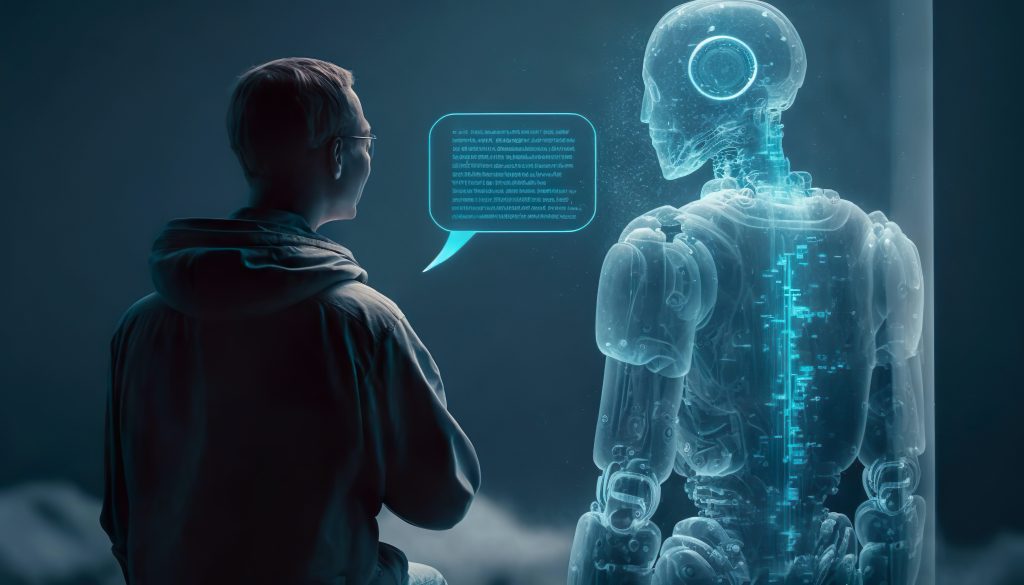
One of the common hurdles businesses face when implementing artificial intelligence (AI) in the workplace is the lack of proper training for employees. According to Microsoft and LinkedIn’s 2024 Work Trend Index on the state of AI at work, only 39% of employees who use AI receive formal training. This report outlines four worker categories: skeptics, reluctant users, untrained or undertrained users, and power users.
Power users, which make up 78% of this final group, present a unique challenge for IT departments. These individuals often bring AI tools to the workplace without IT’s knowledge, especially in smaller companies, where 80% of power users connect AI tools independently.
As AI reshapes workplaces, its greatest potential lies in enhancing human skills like creativity, collaboration, and problem-solving, according to Juan Betancourt, CEO of Humantelligence. His company focuses on creating personalized training solutions to help companies train employees and leaders to incorporate AI safely and effectively. With so few employees receiving comprehensive AI training, Betancourt emphasizes the need for businesses to bridge this gap. Humantelligence’s software integrates with company workflows, creating a learning environment that supports both career development and innovation.
While Betancourt reports positive reception from business leaders, adoption rates for Humantelligence’s AI-driven training solutions have been slow. He describes the company’s approach as both AI-based and unique compared to competitors. “Only 20% of companies we present to purchase the product, but once they do, they love it,” Betancourt shared with TechNewsWorld.
How AI Is Changing the Workplace
The Microsoft-LinkedIn AI Usage Report reveals that many employees are quietly using AI tools without official guidance from their company’s leadership. The report, based on data from 31,000 employees across 31 countries, as well as LinkedIn’s labor and hiring trends and Microsoft 365 productivity signals, highlights the global impact of AI in the workplace.
Surprisingly, 52% of employees who use AI for work tasks are hesitant to admit it, fearing they may be seen as replaceable. Additionally, 53% are concerned that using AI for essential duties could give the impression that their jobs are at risk.
Missed Opportunities Due to Lack of Strategic AI Integration
The report also emphasizes that companies are missing out on AI’s full potential by failing to embrace it strategically. Lack of oversight not only limits AI’s benefits but also raises concerns about cybersecurity and data privacy, as employees use AI tools without proper monitoring.
Ryan Roslansky, CEO of LinkedIn, pointed out that AI is fundamentally transforming work. He stated that companies that prioritize agility and invest in skill-building will stay ahead in a competitive environment, leading to more productive, engaged, and equitable teams.
Customizing AI Training to Fit Different Learning Styles
People learn in different ways. Some may prefer hands-on experience, while others thrive in group settings where they can ask questions. Betancourt explained that Humantelligence’s AI-based platform caters to various learning styles, offering personalized training approaches to help workers master AI.
Unlike traditional, one-size-fits-all methods, this AI-driven tool tailors the training to each individual’s learning style. “We address learning on a personal level,” Betancourt noted. The platform can support AI training across industries by offering flexible, customized approaches based on employees’ unique behavioral and motivational profiles.

Continuous AI Training for Long-Term Success
Rather than relying on one-time workshops, Humantelligence offers a solution for ongoing AI training. The platform provides real-time insights that enable continuous optimization of employee skills, ensuring that 90% of workers receive regular training.
“We use AI to operationalize training, delivering insights at the right moment to the right person,” Betancourt explained. This approach ensures employees are equipped with the tools they need, exactly when they need them, enhancing both productivity and business growth.
Adapting AI to Changing Business Needs
Since its inception in 2016, Humantelligence has evolved to meet the changing needs of businesses, particularly as AI technology has progressed over the last two years. Initially focused on psychometric analysis to assess employee performance, the company pivoted multiple times to respond to industry shifts.
As Betancourt described, AI now plays a central role in the company’s offerings, providing businesses with the tools they need to effectively train their employees to work alongside advanced technologies.
Barriers to AI Adoption in the Workplace
Despite the potential benefits of AI training, many companies remain hesitant to fully invest. Betancourt identified several reasons for this reluctance, including high costs, uncertainty about return on investment (ROI), and a preference for manual over AI-driven solutions.
Additionally, there is often a lack of leadership dedicated to overseeing AI initiatives. Chief Information Officers (CIOs) may be responsible for communication and collaboration platforms, but training typically falls under human resources. Without a clear structure for AI training, many companies struggle to move forward.
The Future of AI Training
As AI continues to shape the future of work, companies that fail to embrace this technology risk being left behind. Comprehensive AI training is essential for maximizing employee potential, improving productivity, and driving innovation. With personalized, ongoing training solutions like those offered by Humantelligence, businesses can ensure they are well-prepared to navigate the challenges and opportunities of an AI-driven world.


